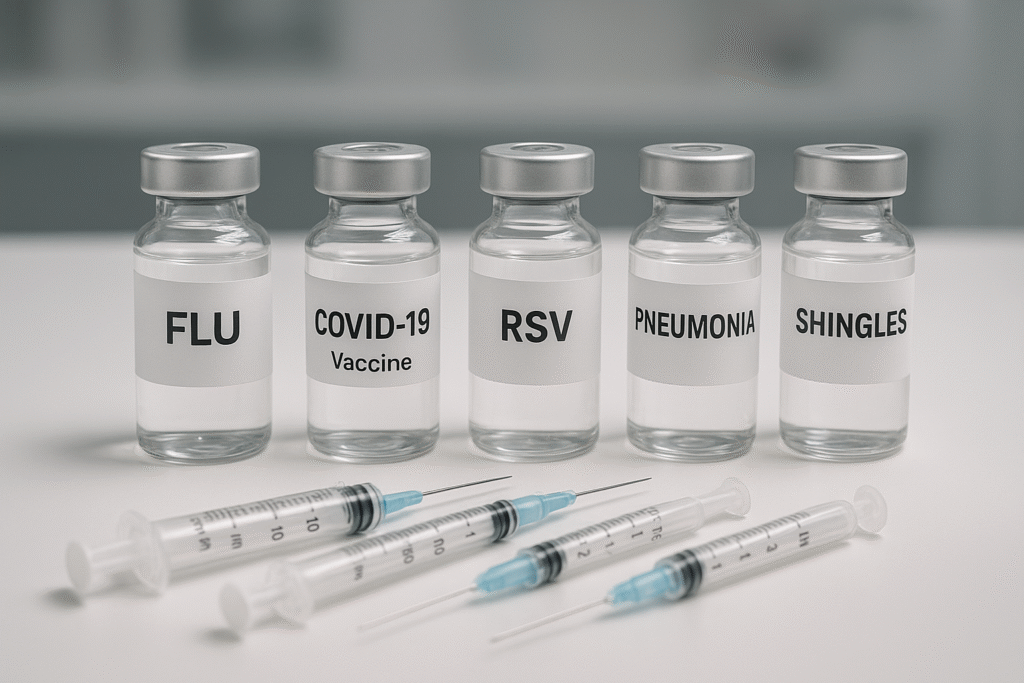Intro
Doctors are raising fresh concerns about vaccination for heart patients. Even common illnesses like flu or pneumonia can put extra strain on the heart, turning routine infections into dangerous complications.
Background / Context
Heart disease is already the world’s leading cause of death. For patients living with it, something as ordinary as a seasonal flu can trigger heart attacks, strokes, or sudden hospitalization. That’s why experts are urging vaccines to be seen as part of everyday heart care—not just protection against germs.
The Latest Development
The American College of Cardiology (ACC) has updated its guidelines. It now recommends that heart patients stay current with these vaccines:
- Flu shot every year to cut risks of severe illness
- COVID-19 boosters to prevent complications
- RSV vaccines for older adults with cardiac conditions
- Pneumococcal vaccines to guard against pneumonia
- Shingles vaccine (two doses after age 50)
These steps, experts say, could lower hospital admissions and save thousands of lives each year.

Expert / Insider Quote
Dr. Paul Heidenreich, who led the ACC update, explained:
“For people with heart disease, vaccination isn’t optional. It’s a critical layer of protection. Too many patients miss out simply because vaccines aren’t discussed during routine care.”
Why It Matters
A flu infection might just mean a week in bed for a healthy adult. For someone with a heart condition, the same flu can trigger a heart attack. That’s why vaccination for heart patients is about more than avoiding illness—it’s about preventing life-threatening complications.
What’s Next
Doctors are being urged to:
- Include vaccine reminders in every heart checkup
- Simplify vaccination schedules for older patients
- Educate families about how shots protect loved ones with heart disease
Closing Line
The bottom line is simple: vaccination for heart patients saves lives—and needs to be treated as part of routine heart care.



